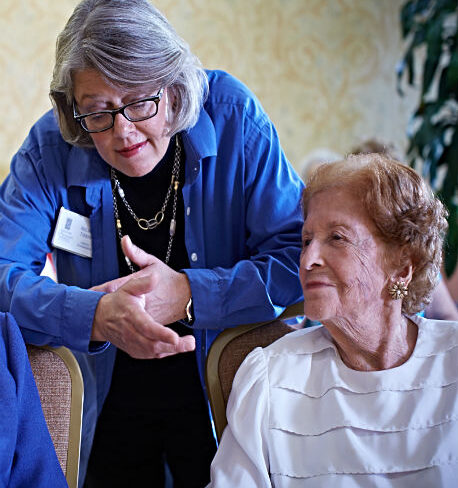There’s more to fire safety than simply having smoke alarms, especially for seniors who may be hard of hearing.
Follow these fire safety tips to stay safe or to keep your aging loved one safe all year long.
Fire Prevention Tips for Seniors
1. Consider Alternatives to Smoke Alarms That Use Noise Alerts
Smoke alarms can help seniors escape a fire—if they hear the alarm.
If you or your senior loved one is hard of hearing, consider smoke alarms equipped with flashing lights to signal an alert. Or consider a smart smoke alarm that also sends an alert to a smartphone or wearable device, causing it to buzz while also providing a visual signal of danger.
Even better? A smoke and fire alarm connected to a home alarm system, which automatically alerts the fire department in the event of a blaze.
2. Use Caution Burning Candles
While many people like the calming scent and ambiance that candles create, seniors—or distracted caregivers—may forget about a candle and leave it burning. Unattended candles may cause a fire.
Consider electric wax burners as an alternative to open flames. Or use technology and set a reminder on your smartphone to check candles before leaving home.
3. Know Your Escape Route
Every home or apartment should have two escape routes, says the National Fire Protection Association (NFPA). In the case of seniors, both routes should be easily accessible. That is, no ladders to climb or challenging window exits.
Escape routes should be well-lighted, night or day. Consider motion sensor lights that can illuminate a path if a senior needs to leave in the middle of the night.
And, to prevent falls, ensure there’s no low furniture, loose rugs, or clutter in the path.
Finally, seniors should have a safe place to wait, such as a neighbor’s house, should their home catch on fire.
4. Keeping Seniors with Alzheimer’s and Dementia Safe from Fire
For seniors in the early stages of Alzheimer’s or dementia, review fire safety tips frequently so they will know what to do in the event of a fire.
Do not use door locks that will keep a senior with Alzheimer’s trapped inside a burning building. Instead, use GPS tracking devices and wearables to keep tabs on a senior prone to wandering, and use smoke and fire alarms with remote alert capabilities so caregivers will receive notifications in the event of a fire.
5. Use Technology to Stay Safe
From smoke detection systems to fire-safe doors and sprinkler systems, Five Star Senior Living communities have the technology and safety measures in place to keep you or your senior loved one protected from fire.
Why not schedule a tour to see if Five Star Senior Living is the right choice for the older adult you love? At Five Star Senior Living, safety matters.

